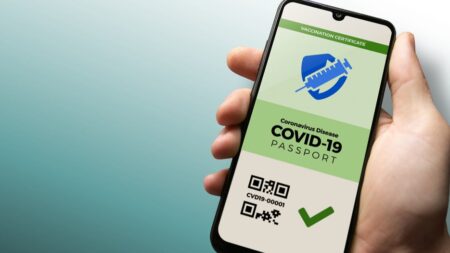NEW South Wales is set to reach the 70 per cent double-vaccination milestone under the COVID-19 Reopening NSW roadmap in October.
The message from the NSW Government is that only the double-vaccinated will be able to enjoy freedoms such as travelling outside their Local Government Area and going for a sit-down cuppa with friends at a café.
Those not, or incompletely vaccinated will miss out until they get their two jabs.
To stop the unvaccinated from pretending that they are vaccinated and enjoying the same freedoms illegally, the Government will introduce what is essentially a COVID-19 vaccination passport.
THE VOICE predicted as much back in March of this year.
Every COVID-19 vaccination is recorded by Medicare. It is already possible to obtain and print a document certifying such vaccinations. The question is will these print-outs be accepted as proof of vaccination when people want to go for a meal or a coffee?
The NSW Government has already signalled that Medicare COVID-19 records will be linked to the NSW COVID-19 tracking app currently used to check in and out of premises.
It is logical and necessary to link the Service NSW COVID-19 tracking app and Medicare records in the roll-out of a vaccination passport to ensure that NSW reopens in a safe way.
However, the Service NSW app currently leaves people without a compatible mobile phone – or no mobile phone at all – out in the cold.
This particular manifestation of the digital divide has the potential to make the roll-out of the Reopening NSW roadmap far less effective and inclusive than it deserves to be.
CPSA members report that many shops and businesses do not have this capability, or, in the case of major shopping venues (including supermarkets such as Coles and Woolworth’s), QR-code scanners are not readily available, causing lengthy waiting periods. CPSA also notes that scanners are not mandatory for shops and businesses.
To ensure that older people, who have the highest rate of full vaccination but the lowest rate of digital connection, can fully participate in the reopening of NSW, practical, functional solutions must be found.
An online vaccination status register with access restricted to shops and businesses would likely be very effective. It would work in combination with people producing photo-ID.
Another option would be to provide hard copy proof-of-vaccination certificates to be collected from a Service NSW shopfront or to be printed out privately following online access.
The use of the COVID check-in card should also continue, despite the issues with it that have been encountered thus far.
